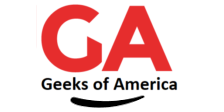Inventory management is a critical aspect of running a successful business, and with the advent of technology, there are many tools available to help small businesses manage their inventory efficiently. In this article, we will list the top 20 inventory management tools for small businesses, along with their pros and cons.

01. QuickBooks Desktop Enterprise :
Overview: QuickBooks Desktop Enterprise is a powerful inventory management tool that offers advanced inventory tracking, customizable reports, and integration with accounting software.
Pros: Robust inventory management features, customizable reports, integration with accounting software, batch processing, and strong security measures.
Cons: Expensive, steep learning curve, limited user access, outdated user interface, and limited customer support.
02. Fishbowl Inventory :
Overview: Fishbowl Inventory is a comprehensive inventory management tool that offers advanced inventory tracking, barcode scanning, and multi-location support.
Pros: Advanced inventory tracking, multi-location support, barcode scanning, integration with QuickBooks, and customizable dashboards.
Cons: Expensive, complex setup, slow performance on large databases, limited integrations, and not user-friendly for beginners.
Read Also : What Is SAP Business One & How To Uses?
03. Cin7 :
Overview: Cin7 is a cloud-based inventory management tool that offers real-time tracking, multi-channel sales support, and automation features.
Pros: Cloud-based, real-time tracking, multi-channel sales support, automation features, easy integration with e-commerce platforms, and customizable dashboards.
Cons: Expensive, complex setup, limited integrations, difficult to learn for beginners, and poor customer support.
04. Zoho Inventory :
Overview: Zoho Inventory is an affordable inventory management tool that offers an easy-to-use interface, multi-channel support, and integration with other Zoho apps.
Pros: Affordable, easy-to-use interface, multi-channel support, integration with other Zoho apps, and real-time inventory tracking.
Cons: Limited customization options, limited reporting features, poor customer support, limited integrations, and occasional bugs.
Read Also : What Is FreshBooks & How To Uses?
05. Vend :
Overview: Vend is a cloud-based inventory management tool that offers an intuitive interface, multi-channel support, and integration with various payment gateways.
Pros: Cloud-based, intuitive interface, multi-channel support, integration with various payment gateways, and a large app marketplace.
Cons: Limited customization options, expensive pricing for advanced features, poor customer support, limited integrations, and occasional glitches.
06. DEAR Inventory :
Overview: DEAR Inventory is a cloud-based inventory management tool that offers advanced inventory tracking, multi-location support, and integration with other business apps.
Pros: Cloud-based, advanced inventory tracking, multi-location support, integration with other business apps, and customizable reports.
Cons: Expensive, complex setup, limited integrations, occasional glitches, and poor customer support.
Read Also : What Is Acumatica & How To Uses?
07. TradeGecko :
Overview: TradeGecko is a cloud-based inventory management tool that offers real-time inventory tracking, multi-channel sales support, and integration with e-commerce platforms.
Pros: Cloud-based, real-time inventory tracking, multi-channel sales support, integration with e-commerce platforms, and customizable dashboards.
Cons: Expensive, limited integrations, steep learning curve, occasional bugs, and poor customer support.
08. SkuVault :
Overview: SkuVault is a cloud-based inventory management tool that offers advanced inventory tracking, barcode scanning, and integration with e-commerce platforms.
Pros: Cloud-based, advanced inventory tracking, barcode scanning, integration with e-commerce platforms, and customizable reports.
Cons: Expensive, limited integrations, occasional glitches, steep learning curve, and poor customer support.
Read Also : What Is NetSuite & How To Uses?
09. Brightpearl :
Overview: Brightpearl is a cloud-based inventory management tool that offers multi-channel sales support, real-time inventory tracking, and integration with e-commerce platforms.
Pros: Cloud-based, multi-channel sales support, real-time inventory tracking, integration with e-commerce platforms, and customizable reports.
Cons: Expensive, limited integrations, occasional bugs, steep learning curve, and poor customer support.
10. Sortly :
Overview : Sortly is a mobile-based inventory management tool that offers an intuitive interface, barcode scanning, and photo attachments.
Pros: Mobile-based, intuitive interface, barcode scanning, photo attachments, and easy to use.
Cons: Limited reporting features, limited integrations, not suitable for larger businesses, no cloud-based access, and limited customization options.
11. Stockpile :
Overview: Stockpile is a free inventory management tool that offers basic inventory tracking, multi-location support, and reporting features.
Pros: Free, basic inventory tracking, multi-location support, customizable reporting features, and user-friendly.
Cons: Limited integrations, no real-time tracking, limited customization options, occasional glitches, and no automation features.
Read Also : What Is Quicken & How To Uses?
12. inFlow Inventory :
Overview: inFlow Inventory is a cloud-based inventory management tool that offers advanced inventory tracking, multi-location support, and customizable reports.
Pros: Cloud-based, advanced inventory tracking, multi-location support, customizable reports, and mobile app.
Cons: Expensive, complex setup, limited integrations, occasional bugs, and poor customer support.
13. Ordoro :
Overview: Ordoro is a cloud-based inventory management tool that offers multi-channel support, real-time inventory tracking, and shipping management features.
Pros: Cloud-based, multi-channel support, real-time inventory tracking, shipping management features, and easy to use.
Cons: Expensive, limited integrations, occasional bugs, steep learning curve, and poor customer support.
14. Tradebox :
Overview: Tradebox is a desktop-based inventory management tool that offers multi-channel sales support, order management features, and integration with accounting software.
Pros: Multi-channel sales support, order management features, integration with accounting software, and customizable dashboards.
Cons: Desktop-based, limited integrations, occasional glitches, limited automation features, and poor customer support.
Read Also : What Is Sage & How To Uses?
15. Unleashed :
Overview: Unleashed is a cloud-based inventory management tool that offers advanced inventory tracking, multi-location support, and integration with various e-commerce platforms.
Pros: Cloud-based, advanced inventory tracking, multi-location support, integration with various e-commerce platforms, and customizable reports.
Cons: Expensive, limited integrations, occasional glitches, steep learning curve, and poor customer support.
16. EZOfficeInventory :
Overview: EZOfficeInventory is a cloud-based inventory management tool that offers barcode scanning, real-time tracking, and integration with various business apps.
Pros: Cloud-based, barcode scanning, real-time tracking, integration with various business apps, and user-friendly.
Cons: Expensive, limited integrations, occasional bugs, limited customization options, and poor customer support.
17. Megaventory :
Overview: Megaventory is a cloud-based inventory management tool that offers multi-location support, real-time tracking, and integration with various e-commerce platforms.
Pros: Cloud-based, multi-location support, real-time tracking, integration with various e-commerce platforms, and customizable dashboards.
Cons: Expensive, limited integrations, occasional glitches, limited automation features, and poor customer support.
Read Also : What Is Wave Accounting & How To Uses?
18. Wasp Inventory Control :
Overview: Wasp Inventory Control is a desktop-based inventory management tool that offers barcode scanning, order management features, and integration with accounting software.
Pros: Barcode scanning, order management features, integration with accounting software, and customizable reports.
Cons: Desktop-based, limited integrations, occasional glitches, limited automation features, and poor customer support.
19. EMERGE App :
Overview: EMERGE App is a cloud-based inventory management tool that offers multi-location support, order management features, and integration with various e-commerce platforms.
Pros: Cloud-based, multi-location support, order management features, integration with various e-commerce platforms, and customizable reports.
Cons: Expensive, limited integrations, occasional bugs, steep learning curve, and poor customer support.
20. ABC Inventory Software :
Overview: ABC Inventory Software is a desktop-based inventory management tool that offers basic inventory tracking, order management features, and integration with accounting software.
Pros: Basic inventory tracking, order management features, integration with accounting software, and customizable reports.
Cons: Desktop-based, limited integrations, occasional glitches, limited automation features, and poor customer support.
Read Also : What Is Xero & How To Uses?
Conclusion:
Choosing the right inventory management tool for your small business can be a daunting task. It’s essential to consider the features you need, the size of your business, and your budget.
Here’s a quick summary of the top 20 inventory management tools for small businesses:
- Zoho Inventory – Comprehensive features, affordable, and customizable reports.
- QuickBooks Enterprise Advanced Inventory – Advanced inventory tracking, user-friendly, and integration with accounting software.
- Fishbowl – Advanced inventory tracking, multi-location support, and integration with various business apps.
- Cin7 – Cloud-based, multi-channel support, and integration with various e-commerce platforms.
- SkuVault – Advanced inventory tracking, user-friendly, and integration with various business apps.
- Ordoro – Cloud-based, multi-channel support, and shipping management features.
- StockIQ – Advanced inventory tracking, forecasting tools, and integration with various business apps.
- Stitch Labs – Cloud-based, multi-channel support, and order management features.
- Katana – Cloud-based, intuitive interface, and real-time inventory tracking.
- Sortly – Mobile-based, barcode scanning, and photo attachments.
- Stockpile – Free, basic inventory tracking, and multi-location support.
- inFlow Inventory – Cloud-based, advanced inventory tracking, and multi-location support.
- Ordoro – Cloud-based, multi-channel support, and shipping management features.
- Tradebox – Desktop-based, multi-channel sales support, and integration with accounting software.
- Unleashed – Cloud-based, advanced inventory tracking, and integration with various e-commerce platforms.
- EZOfficeInventory – Cloud-based, barcode scanning, and integration with various business apps.
- Megaventory – Cloud-based, multi-location support, and integration with various e-commerce platforms.
- Wasp Inventory Control – Desktop-based, barcode scanning, and integration with accounting software.
- EMERGE App – Cloud-based, multi-location support, and integration with various e-commerce platforms.
- ABC Inventory Software – Desktop-based, basic inventory tracking, and integration with accounting software.
Ultimately, the best inventory management tool for your small business will depend on your specific needs and budget. Take the time to research and compare the features and pricing of different tools to find the one that works best for your business.
